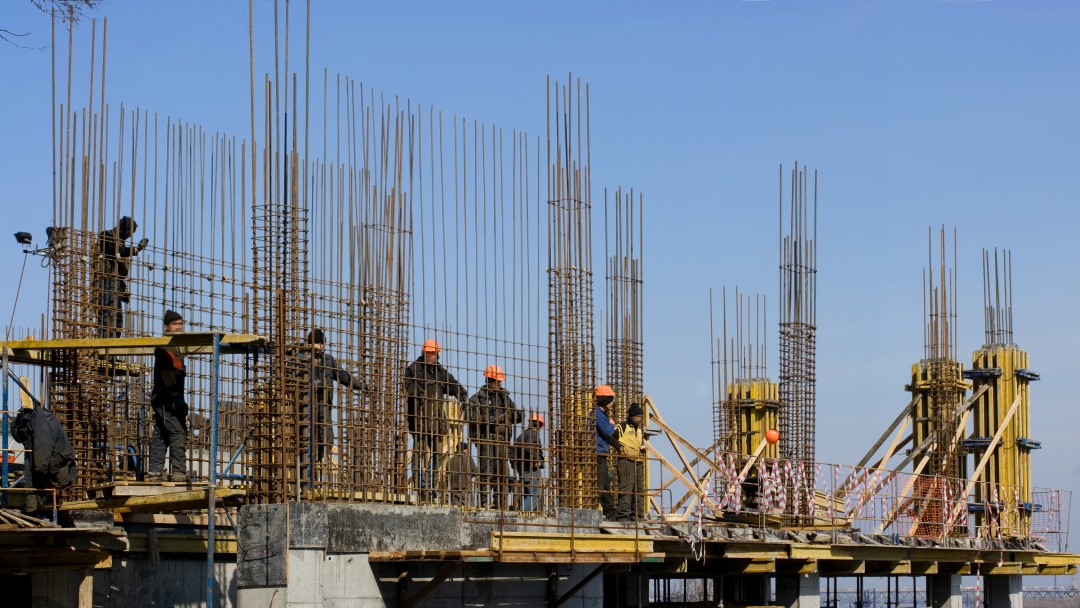News from 2017-12-18 / KfW Development Bank
More employment for displaced people in Ukraine
International Migrants Day: KfW supports refugees around the world

Around 66 million people around the world are still displaced. They flee from war and violence, but also from poverty and hardship. The United Nations is using International Migrants Day (18 December) to remind people of the situation of refugees and displaced persons. For years, KfW has been helping to improve their situation. Recently, the first project agreement was made with the International Organization for Migration (IOM) on behalf of the Federal Ministry for Economic Cooperation and Development (BMZ). The goal is to increase employment for internally displaced Ukrainians.
The crisis in Ukraine has become one of the forgotten conflicts, yet violence continues in the region. Around 2.7 million people have fled the disputed regions in the eastern part of the country since 2014 — about one million to neighbouring Russia, while 1.7 million people sought refuge in government-controlled regions within Ukraine. "The atmosphere in the host communities was initially welcoming," says KfW Project Manager Judith Böhnke. But this positive attitude is now threatening to change.
The strong population growth has exacerbated the already difficult economic situation in Ukraine, with increasing competition in the employment and housing markets. So far, very few internally displaced persons have been able to take up formal employment and generate an income. Many rely on government aid. "Internally displaced persons in Ukraine are well educated in comparison to other refugees across the globe, though," explains Ms Böhnke. About half have university degrees, while 33% have vocational training.
Assistance for founding small businesses
In cooperation with the International Organization for Migration (IOM), KfW Development Bank wants to support internally displaced persons and other people affected by conflict as they independently generate income and employment. The objective is to help people found small businesses. Within the context of seminars, refugees are given information about basic economic and legal principles, along with basic skills for marketing and developing a business concept.
If they want to found a business or service like a hair salon or carpentry workshop, they receive in-kind benefits worth between EUR 650 to EUR 2,500 to use for building their business. Expansion of already existing, successful small businesses can be promoted with in-kind benefits of up to EUR 5,000. "Refugees should be able to live from their own incomes and no longer rely on government or international aid," says Ms Böhnke. Approximately 3,400 people are expected to benefit from the project.
The newly started project in Ukraine is just one of many that KfW uses to support refugees on behalf of the German Federal Government. For years, it has helped to counter causes of migration, stabilise host regions and integrate refugees. Currently, 105 projects in 26 countries are being financed with a total of over EUR 2.6 billion.

Share page
To share the content of this page with your network, click on one of the icons below.
Note on data protection: When you share content, your personal data is transferred to the selected network.
Data protection
Alternatively, you can also copy the short link: https://www.kfw-entwicklungsbank.de/s/enzBWrMC.BtgA
Copy link Link copied